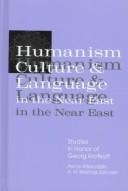| Listing 1 - 3 of 3 |
Sort by
|
Book
ISBN: 9780748632770 9780748632763 9780748632244 9780748695751 0748632778 074863276X 0748695753 0748632247 Year: 2015 Publisher: [Place of publication not identified] Edinburgh University Press
Abstract | Keywords | Export | Availability | Bookmark
 Loading...
Loading...Choose an application
- Reference Manager
- EndNote
- RefWorks (Direct export to RefWorks)
This book deals with certain "hot-button" contemporary issues in Islam that are often the focus of public scrutiny, including the Sharia, jihad, the caliphate, women's status, and interfaith relations. Notably, it places the discussion of these topics within a longer historical framework in order to reveal their multiple interpretations and contested applications over time. Most public and some academic discourses however present the Islamic tradition as unchanging and therefore unable to respond to the modern world. Such an ahistorical approach fosters the belief that Muslim and Western societies are destined to clash with one another. In contrast, this book allows the reader to see the diversity and transformations within Islamic thought over time. Focusing on this internal diversity permits us to appreciate the scriptural and intellectual resources available within the Islamic tradition for responding to the challenges of modernity, even as it interrogates and shapes modernity itself.
297 --- Islam. Mohammedanisme --- Islam. --- Islam and politics. --- Islamitisch recht. --- Heilige oorlog. --- Kalifaten. --- Islam --- Islam et politique --- Histoire --- 2000 - 2099 --- Islam and politics --- Middle East --- Regions & Countries - Asia & the Middle East --- History & Archaeology --- Politics and Islam --- Political science --- Political aspects

ISBN: 1575065088 9781575065083 1575060205 9781575060200 Year: 1997 Publisher: Winona Lake, Ind. : Eisenbrauns,
Abstract | Keywords | Export | Availability | Bookmark
 Loading...
Loading...Choose an application
- Reference Manager
- EndNote
- RefWorks (Direct export to RefWorks)
Essays by 33 colleagues, friends, and students of the Johns Hopkins University Arabist and linguist. Topics include (1) humanism, culture, and literature; (2) Arabic; (3) Aramaic; and (4) Afroasiatic.
Arabic philology. --- Aramaic language. --- Aramean language --- Biblical Aramaic language --- Chaldaic language --- Chaldean language (Aramaic) --- Chaldee language --- Semitic languages, Northwest --- Syriac language
Book

ISBN: 1626165858 9781626165854 9781626165830 1626165831 9781626165847 162616584X 9781626165830 Year: 2018 Publisher: Georgetown University Press
Abstract | Keywords | Export | Availability | Bookmark
 Loading...
Loading...Choose an application
- Reference Manager
- EndNote
- RefWorks (Direct export to RefWorks)
Conventional wisdom would have it that believing in one God is straightforward; that Muslims are expert at monotheism, but that Christians complicate it, weaken it, or perhaps even abandon it altogether by speaking of the Trinity. In this book, Muslim and Christian scholars challenge that opinion. Examining together scripture texts and theological reflections from both traditions, they show that the oneness of God is taken as axiomatic in both, and also that affirming God's unity has raised complex theological questions for both. The two faiths are not identical, but what divides them is not the number of gods they believe in. The latest volume of proceedings of The Building Bridges Seminar-a gathering of scholar-practitioners of Islam and Christianity that meets annually for the purpose of deep study of scripture and other texts carefully selected for their pertinence to the year's chosen theme-this book begins with a retrospective on the seminar's first fifteen years and concludes with an account of deliberations and discussions among participants, thereby providing insight into the model of vigorous and respectful dialogue that characterizes this initiative. Contributors include Richard Bauckham, Sidney Griffith, Christoph Schwöbel, Janet Soskice, Asma Afsaruddin, Maria Dakake, Martin Nguyen, and Sajjad Rizvi. To encourage further dialogical study, the volume includes those scripture passages and other texts on which their essays comment. A unique resource for scholars, students, and professors of Christianity and Islam.
Monotheism --- God --- God (Islam)
| Listing 1 - 3 of 3 |
Sort by
|

 Search
Search Feedback
Feedback About UniCat
About UniCat  Help
Help News
News